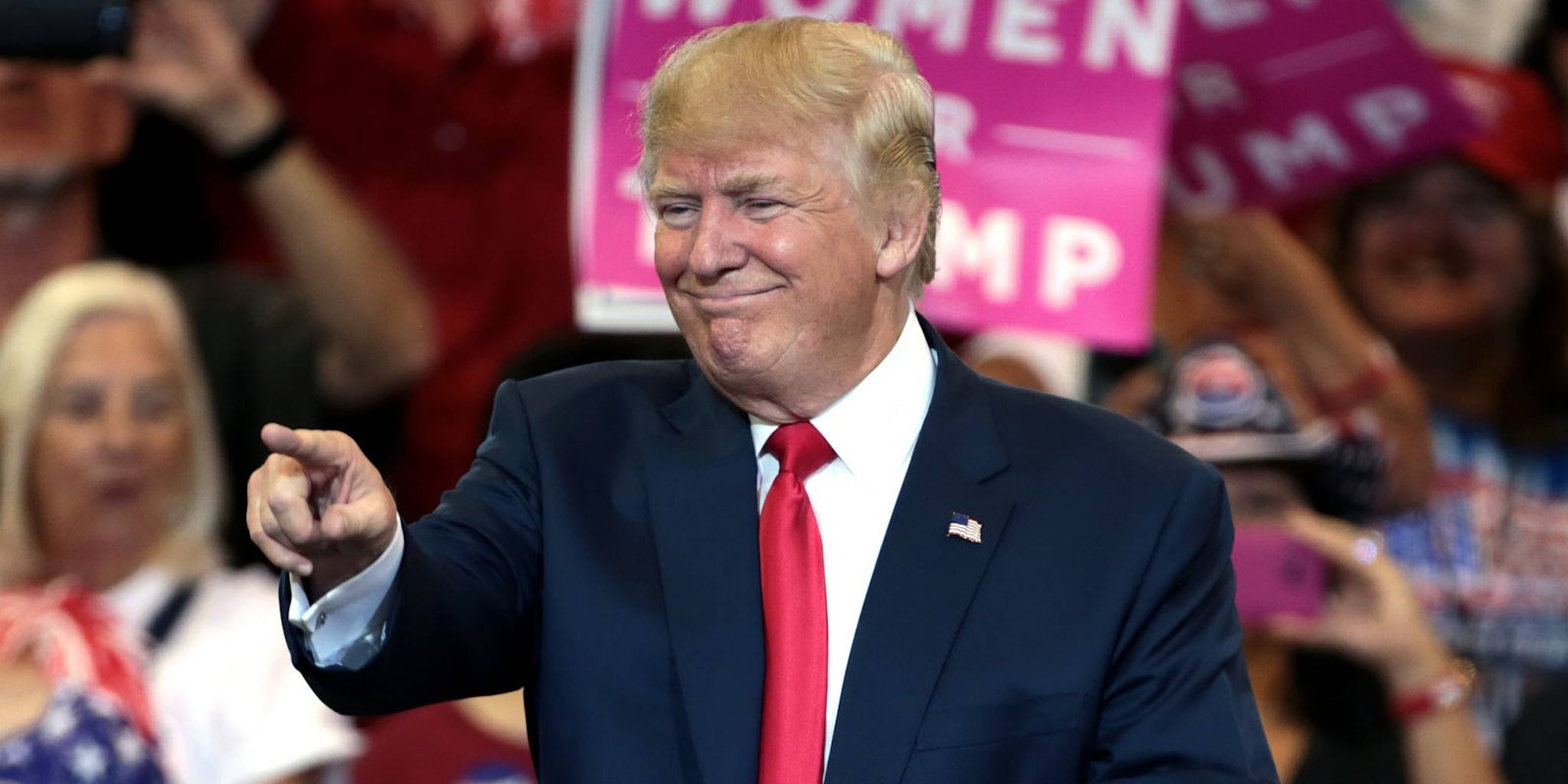With his inauguration quickly approaching, President-elect Donald Trump is struggling to publicly divorce himself from his private financial and business ties before assuming a new role as America’s chief executive.
Reports continue to surface about secluded meetings with foreign leaders and capitalists with whom Trump’s company has ongoing business. In many cases, these meetings have been held in the presence of a second Trump Organization executive.
Rumors circulated on Monday, for instance, that during a congratulatory phone call between Trump and Argentine President Mauricio Macri, the topic briefly turned to the construction of an office building in Buenos Aires—a Trump business project reportedly held up by permitting requirements.
Trump’s transition team adamantly denied the report, which originated with one of Argentina’s most prominent journalists, Jorge Lanata. A spokesperson for Argentina’s president likewise denounced the story, telling a BBC correspondent in Brazil, “It’s absolutely untrue.” The Embassy of Argentina said, “The subject both leaders talked about was the institutional relationship, and they briefly mentioned the personal relationship they had for years.”
Nevertheless, Trump appears to be getting a taste of the suspicion that will hover over his presidency as long as he remains steadfast in his refusal to distance the White House from the goings-on of his vast business empire.
Daily news coverage of Trump’s unprecedented “not-so-blind” trust, under which he will reportedly grant three of his children—Donald Jr., Eric and Ivanka—control of his business, may contribute to an erosion of support he amassed during the campaign by painting Democratic rival Hillary Clinton as the quintessential “pay-to-play” politician.
Ostensibly, surrendering control of his own business to his offspring (who incidentally hold top positions on his White House transition team) is more about delegating the Trump Organization workload than distancing the Oval Office from inherent conflicts of interest.
In this regard, Trump himself appears to be experiencing difficulty in maintaining even a semblance of ethicality. One week after the election, Trump met with Indian business partners along with his three heirs purportedly managing his assets. The Indian businessmen with whom Trump spoke are personally involved in five projects tied to the Trump Organization, including luxury condos that the president-elect does not personally own but nevertheless bear his name.
Trump’s daughter, Ivanka, was also present when the president-elect met with Japan’s Prime Minister Shinzo Abe in New York City last week, raising questions about the role of his enterprise in that exchange. As Ivanka is the executive vice president of development and acquisitions for the Trump Organization, the purpose of the meeting has been justifiably questioned by news outlets apprehensive about the many ways in which Trump could enrich his family’s wealth using the power and influence that naturally permeates the American presidency. Ivanka was also reportedly on the call with Argentina’s president, according to Macri himself.
Toward the end of his campaign, Trump swore that, if elected, his administration would “drain the swamp.” It was a catchy, if not fitting metaphor for shaking up Washington, and an auspicious one for a candidate whose rival, a former corporate litigator, was effortlessly cast as the “ultimate Washington insider”—a label bolstered by the testimonies of Democrats, including President Obama, who sought to paint Clinton as the “most qualified” White House candidate in history.
Trump’s promise to “drain” Washington of crony capitalists galvanized his supporters, many of whom fundamentally view the so-called revolving door on Capitol Hill as a poisonous portal.
Trump’s ceaseless attacks on his own party leadership (not to mention his total lack of experience in the military or government work) solidified his reputation as a Washington outsider immune to the kind of lobbyist who resigns from years of government service one day only to return the next under an oath of corporate fealty. Trump’s supporters, however, seemingly paid little attention to the fact that it was conservative justices on the Supreme Court all along who paved the way for unlimited dark-money spending in the election.
Trump has yet to detail how his administration would fully enforce a proposed five-year ban on officials taking lobbying jobs. And there are signs that his ban on lobbyists seeking White House jobs may be skirted with just a little bit of paperwork: As the Washington Post reported last week, a close aide to Vice President-elect Mike Pence filed on Nov. 14 to terminate his status as a federal lobbyist. A rhetorical question posed by Post reporter Aaron Blake highlights how disingenuous the ban is if poorly enforced: “Is hiring someone who was a registered lobbyist until a few days ago really not hiring a lobbyist?”
Trump’s transition has so far failed to exemplify in practice what he preached, floating the names of several potential cabinet appointees with career ties to K Street; some, if selected, may even require Trump to roll back ethics restrictions on lobbyists put in place by President Obama, according to the Post. (The Obama administration, too, struggled to completely live by those rules.)
Trump seemed to nod at this difficulty recently, telling 60 Minutes that “everybody that works for government, they then leave government and they become a lobbyists, essentially. I mean, the whole place is one big lobbyist.”
